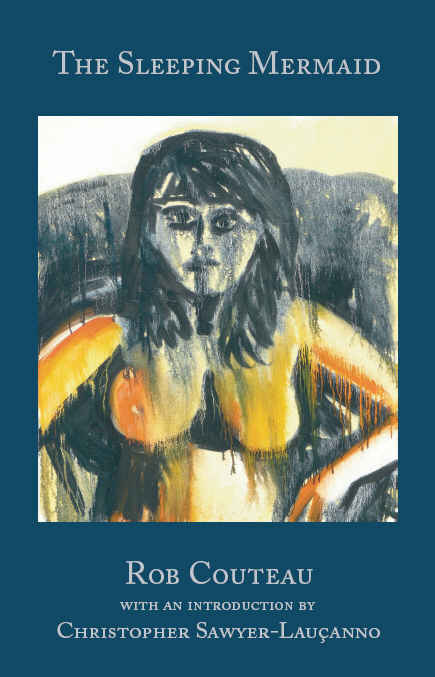|
by
Robert Roper |
|
|
|
||
|
It was a long time since he had seen a
picture with his name on it. -- “Pat Hobby’s Preview,” F. Scott Fitzgerald.
When I last talked to my friend Pat Hoberman he was thinking about selling his cars. Then I heard he’d come into some short-term financing and had spent the time it earned him writing an action script for a Mexican cable channel and “something I really care about, you’ll love this one I think.” I pressed him on the finances, and he said, “Turns out you can borrow the cost of a kid’s semester tuition plus expenses. Basically without collateral at a variable rate somewhere in the neighborhood of five or six right now. So you don’t have to raid your retirement account if you have one.” “Wait a minute. I thought Chloe dropped out of school, you said.” “Maybe she did. Maybe she didn’t.” “They have to be in on it, right? Pomona?” “Not for however long, a semester. A semester and a summer.” He had another call, and when he called me again it was already the end of the day. “You know Arthur Kohn, right?” “Yeah, sure, I know Arthur. I fear Arthur.” “Arthur’s all worried about his youngest daughter, Nell. She left home and went to live with a boyfriend, a very dark boyfriend. I’m thinking, what have I got to do with your family problems, Arthur, what am I, some kind of expert” – my friend Pat used to be married to Merle, a black woman, with whom he had Chloe – “maybe I might even be offended by this call, Arthur, did you ever think of that? Who cares if she’s got a boyfriend from the wrong side o’ the tracks? What’s that to me?” “Right.” “Turns out, though, he’s not some ho-pushin’, rockhead gangsta hip-hop devil. No, he’s a medical student, by God. A researchin’, post-doc-havin’ prestige fellow with a Robert Wood Johnson, a Ph.D. physicist, no less. Expert on MRI spin spectroscopy. Workin’ at UCLA while he gets his degree doing the high-end entrail-readin’ over there. Met Nell at the beach and they moved in together last Christmas. Happy together. Very happy.” “Oh, okay. That’s different.” “Yeah. So now it’s a brag session, I figure. About how Arthur and Fran are so advanced they’re glad instead of blowing their brains out. How Nell won the lottery of all lotteries with this boyfriend. Only I’m wondering, what have I got to do with this, Arthur, are we blood-brothers now? Have we bonded? It reminded me of what a jerk he is, Arthur. An asshole.” I said nothing. He already knew what I thought of Arthur. He had to take another call. But he called me right back: “The boyfriend comes over for dinner, okay. Nice enough kid, grew up in Silver Lake. Mother’s a dentist. Young Dr. Kildark says everyone’s very excited over at the hospital now, there’s a special patient coming in on Monday, somebody very big. Can’t say who, all very hush-hush. But, you know, a star. A big star.” “Uh-oh.” “Yeah, he’s got cancer. Started out in the rectum and now maybe it’s everywhere, even in the bones. Arthur says, come on, kid, you can tell me. I know everybody anyway. Probably I already heard this. And the kid does. He says who.” My friend Pat breathed heavily into the phone. “What was that? I didn’t catch that.” “You didn’t catch it ‘cause I didn’t say nothin’, pal.” “Am I supposed to know who you’re talking about?” “No, you aren’t. But yeah, you are. You are.” And somehow, I did know. I already did. It had to do with knowing my friend Pat for over twenty years. The whole arc of his career, the few ups and the one big, big down. I knew the one guy it had to be, if he was saying this to me. If Arthur Kohn had called him. If it had come to him from Arthur. “Oh, no. No, ” I said. “Yeah.” “Tell me it ain’t so, Joe. Just from the point of view of, you know, a desperate fan.” “Yeah, it comes to everybody, pal. In the end. The rear end.” “But your script, man. That’s what I’m upset about. The fucking script.” “Yeah, I know. I know.” A bit of history. My friend Pat writes a screenplay in ’93 that only one man could ever make, on account of the kind of stories he does, what he’s famous for. Only this guy. At the time, the biggest male box-office draw and an Oscar-winner, too, for directing. But Pat has a nasty little worm of an agent who goes around insulting his betters, and there’s a war on between this insignificant little worm and the guy’s representation, the details of which are so twisted that my friend Pat can never bear to tell me, and I have to hear about it from somebody else. From Arthur Kohn’s ex-partner, as I recall. And the result is that his script, called Grassy Knoll, about the Grassy Knoll killer of Kennedy, goes unread. The one good thing he ever wrote, what he was put on earth by God to do. And it was decreed at the highest levels that this piece of work should never pass before the great man’s eyes, no matter how worthy it might be. Probably it did pass, in the way of things, but with so much negativity and bad mojo that it didn’t matter. And it became a minor legend, the ruination of a career, the evil worm of an agent sent home to Bakersfield but also the innocent writer washed up, kaput. The guy who in a weak moment allowed himself to be represented by someone who didn’t know the rules, who didn’t assume the proper begging position. Who brought a storm of trouble down on his own head and in the meantime ruined the innocent writer, plus the script he wrote. People fleeing from any association as if to show how noble they were, how repulsed. As if the very idea of it had been an insult. “Yeah, yeah. Yeah yeah yeah,” said Pat. “End of the dream, my man. So sorry.” “Yeah. ’Fraid so.” I next heard from Pat a week later. He sounded better than he had in years. “What’s been going on? Oh, nothing. But catch this,” he said. “I gave him the script. He’s reading it, even as we speak.” “Wha’?” “Yeah, you heard me right. He’s reading the script.” It took me a moment to put it all together. “And?” “And, that’s all. Find out pretty soon I guess.” “Oh, wow.” “Yeah. Wow.” “How is he?” “What can I say? Fucker weighs about a hundred pounds. But it could be the chemo, you don’t know. He could get better.” “Oh, shit.” “Yeah. But, from another point of view, stranger things have happened. Maybe this is just what he needs. To go on. To come back.” “Yeah, something he can believe in.” “Exactly. Like Huston on, what was it, ‘Prizzi’s Honor.’” “No, ‘The Dead.’ James Joyce’s ‘The Dead.’” “Yeah, tooling around in his wheelchair. With the oxygen.” Arthur was already setting up the deal, said Pat, just in case. My man Pat had another good friend named Maslow who worked at UCLA, who knew a lot of people, who had loved Braindead, Pat’s one produced feature. Pat found himself walking the halls of the Weininger Wing wearing a white coat and a nametag, with two copies of his script in a plastic bag (you never knew, you might drop one, leave it in the car, you never knew). Looking for the Metro Suite in the VIP section. And here it was, swinging into view past the nurse’s station that looked like somebody’s Bel Air livingroom circa 1957, nobody’s at the desk or the door, do you knock? Yes, you knock, then you wait and enter, just like a real doctor. Like a real doctor does. “He has a young wife now, looks Mexican,” Pat told me. “I went right over to the bed. He had an I.V. and a tube up his nose and he looked about a hundred and thirty, looked just terrible. Watching CNN. “‘What the fuck do you want,’ he says to me after a minute, catching me by surprise. “‘Oh, I brought you your medicine, sir,’ I said. ‘I’m Dr. Hoberman. I’m doing the rounds today.’ “‘Doing the what?’ “‘You know, the rounds. Here it is,’ I said, and I gave him one of the scripts. “He looks at it. And looks. Then he lays his wasted hand on top of it, like it’s the Bible. Like he’s been waiting for this to be delivered to him, been waiting for ages. Then he notices the title page. “‘Hey, Hoberman,’ he says. ‘I’ve heard of you. I’ve heard about this piece of shit, too. Come on, get this outa here. Go on. Take it.’ “‘No, wait a minute,’ I say, ‘wait. It’s a good script, sir. Something written just for you. It’s not a piece of shit, sir, no, it’s really very good. It’s an award-winner.’ “‘You think so?’ “‘Yeah, I really do.’ “‘Hey, I got news for you, buddy,’ he says. ‘I saw the coverage on it. I’m a hero, dumb-ass, I don’t play the Hillside Strangler or the Grassy Knoll shooter, either. I kill the shooter if I do anything to him. You got that?’ “‘Yeah, I know, I know. But you can do this. You can really do this now.’ “‘Ai, mierda,’ the wife says at this point. ‘This guy a focking writer? Focking screenwriter getting in here? I go get security!’ “She gets up out of her chair, but he says, ‘No, wait a minute, honey. Guy’s got some balls, comin’ in here like this. Funniest fuckin’ thing I’ve seen all day. Wait there. Wait.’” At this point, I began wondering if my friend Pat was making this up. He was good at, what else, scenarios. Plausible impossibilities. He said, “You’re thinking, Pat’s making this all up, but it happened, man. The wife sits down again. And he starts leafing through the script. Reads the first page. Reads the second page, the third. The first five pages. At the top of page six, we’re in Dealey Plaza again, in the nightmare again, and it’s the Zapruder film only we’re in it and it’s come alive, it’s from the point-of-view of Stingley, the young contract killer who’s doing a piece of work, no more, repeating the line of poetry that he says all the way through,
and his lips start moving. Already sort of performing it, you know, there in bed. And he looks up at me, just for a second. Then down again. Goes on reading.” “Oh, Jesus,” I said. “Oh, wow.” “Yeah. It was most humbling, man. To be in the very presence. And the wife gets up kind of quiet this time, and he doesn’t see her go. And then I’m there with him alone, just him and me, us. And I don’t know, somehow it all made sense. Ten years in the fucking wilderness. Him getting cancer, because he had to suffer, had to go farther, deeper. They’re denying it’s cancer by the way. Just the gall bladder, they say. Page seven, page eight. Page ten! And I’m looking at him all the time, because he has to know he’s reading the best part he’ll ever play, maybe his greatest ever. And I’m feeling it, man, knowing the joy! Because only he can do this, and it wasn’t just bullshit I was shoveling all those years! Ten years ago he couldn’t because he wasn’t real enough, he hadn’t gone way down. Wasn’t sick enough to carry all our nightmares, our national tsouris….” According to my friend Pat, the actor’s wife returned a few minutes later with an armed guard. As Pat was being packed off, the famous actor lifted the script off his lap for just a second and nodded: Don’t worry, this is good, he seemed to be saying, this is really pretty fucking good. I’m gonna read it, and I’ll get back to you.
|
||
|
See also:
An Interview with Robert Roper,
|
||
Updated: 20 April 2012 | Copyright © 2012 Robert Roper | key words: literary fiction | short stories | film movies cinema | Walt Whitman | JFK grassy knoll |


